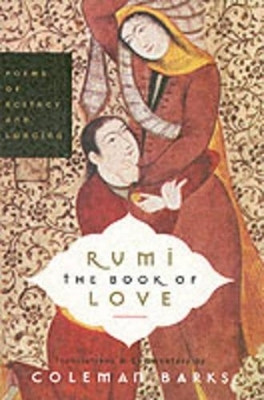Rumi: The Book of Love(English, Paperback, Barks Coleman)
Quick Overview
Product Price Comparison
Rumi The Book Of Love: Poems Of Ecstasy And Longing is a collection of poems of the ancient Persian poet, Rumi, rendered by Coleman Barks in English. Summary Of The Book Rumi The Book Of Love: Poems Of Ecstasy And Longing begins with a foreword from the translator, Coleman Barks. He says that love is basically surrender, as per RumiŌĆÖs philosophy. Barks says that according Rumi, love is a spiritual connection, where the person gets in touch with his inner Lord. The book begins with a chapter called Spontaneous Wandering, where Barks talks about his initial tryst with RumiŌĆÖŌĆÖs works, and how much his interpretation and perspective has changed since then. He says that the first time he dabbled in Rumi, he was thirty nine. During Rumi The Book Of Love: Poems Of Ecstasy And Longing, Barks is sixty five. He says that the change is good and that he has placed a different spin on the Persian poetŌĆÖs work this time round. The next chapter is about the sohbet. In sufi mysticism, there were essentially three different steps to reach the divine. The first is prayer. The second step is a level above that, where the seeker meditates to get in touch with his or her inner lord. The third and highest step is actual conversation with the divine, called sohbet. Rumi talks about pure, all-encompassing love as a way to this final step. Throughout the collection, Rumi is shown to be astute, concentrating on the nuances of love, on the smaller things that matter. There is a chapter called Superabundance of Human Beings, where Barks talks about how important the little findings are, and how love can never be complete without it. Rumi The Book Of Love: Poems Of Ecstasy And Longing is a study on finding oneŌĆÖs inner self through pure, unselfish love. About The Authors Jalal Ud-Din Muhammad Balki, known popularly as Rumi, was born in the thirteenth century. He was a poet, Sufi mystic and jurist. His spiritual precepts have been greatly appreciated by the Muslims of South and Central Asia. RumiŌĆÖs works have transcended religious and geographical boundaries, as he is widely read in America and the United Kingdom, among other non-Muslim countries. Coleman Barks is an American poet, who was born and raised in Tennessee. He studied at the University of North Carolina, and then at the University of California, Berkeley. He has been studying Sufism for over thirty years now, and though he does not read Persian, he is widely acknowledged as a competent interpreter of RumiŌĆÖs works.


